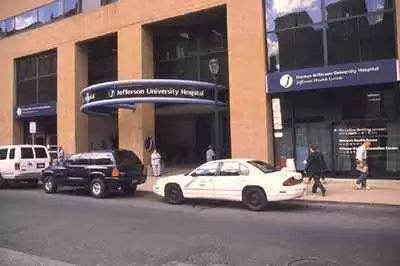Celiac.com 01/25/2016 - The latest research says that most fail to recommend celiac screening for first degree relatives, although some doctors are better than others.
 In a recent study, researchers tried to get an idea of just how frequently celiac disease patients receive a physician-issued recommendation for first-degree relative screening.
In a recent study, researchers tried to get an idea of just how frequently celiac disease patients receive a physician-issued recommendation for first-degree relative screening.
Celiac.com Sponsor (A12):
The research team included Abhik Roy, Colin Smith, Constantine Daskalakis, Kristin Voorhees, Stephanie Moleski, Anthony J DiMarino, David Kastenberg. They are variously associated with the Division of Biostatistics, the Division of Gastroenterology and Hepatology, the Department of Medicine at Thomas Jefferson University, Philadelphia, Pennsylvania, USA, and the National Foundation for Celiac Awareness in Pennsylvania.
For their study, the research team conducted a 12-question survey assessing whether celiac disease patients receive a physician recommendation to screen first-degree relatives for celiac disease, and the impact of such a recommendation, was validated with outpatients in a university gastroenterology practice, called "University"patients. The 12-question survey was then distributed online to members of the National Foundation for Celiac Awareness (NFCA).
The team then collected results over 3 months, and used univariate analysis to compare cohort means, and to assess the association between demographic and diagnostic factors and first-degree relative screening recommendations.
A total of 87 University patients participated in the validation phase. Test-retest reliability of 4 key survey questions was high, with a Kappa coefficient >0.80. The team based its main analyses on data from 677 NFCA and 82 University respondents. Most respondents were female, with an average age of 45 years.
Nearly 80% of University patients received recommendation for celiac disease screening for first-degree relatives, compared with just 44% of the NFCA respondents (p < 0.001).
Of patients who did receive a screening recommendation, from either group, 98% percent discussed the recommendation with family members, leading to celiac disease screening in 71% of University patients, and 79% of NFCA respondents, and to a celiac disease diagnosis in 18% of University patients, and 27% of NFCA respondents.
Physicians commonly fail to mention to their celiac disease patients the importance of screening first-degree family members. Because such screening is so effective, the researchers are suggesting that making such screening recommendations may increase the diagnosis of celiac disease in high risk individuals.
Source:
- Open Original Shared Link







Recommended Comments
There are no comments to display.